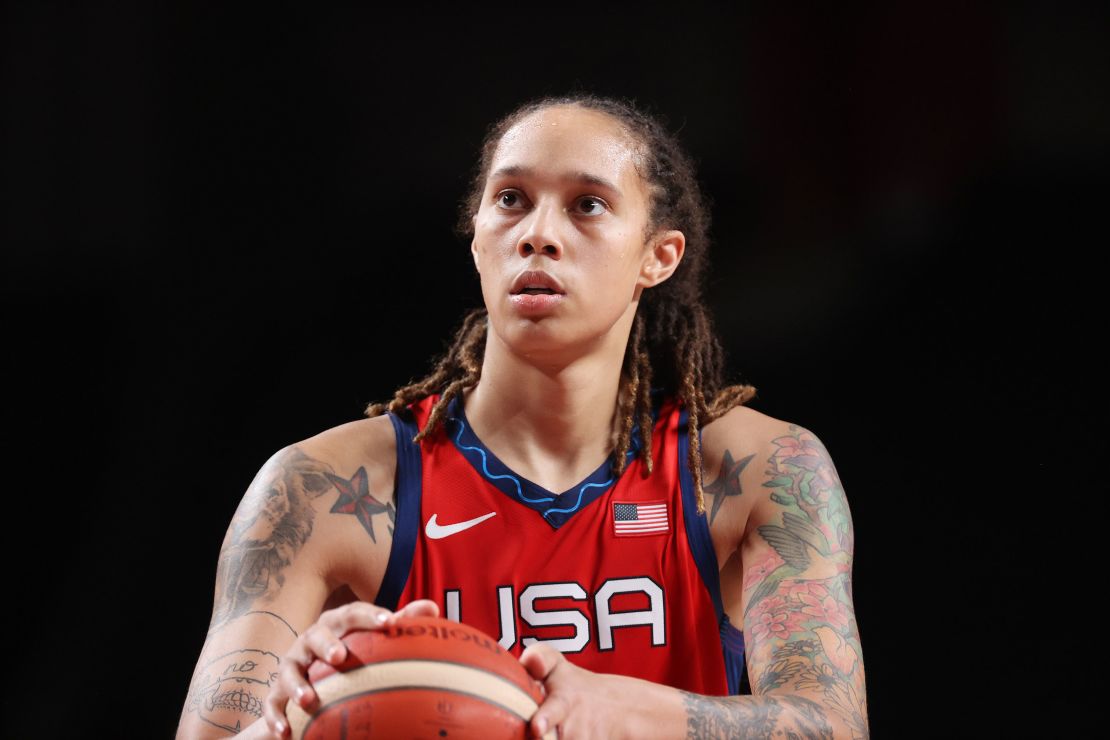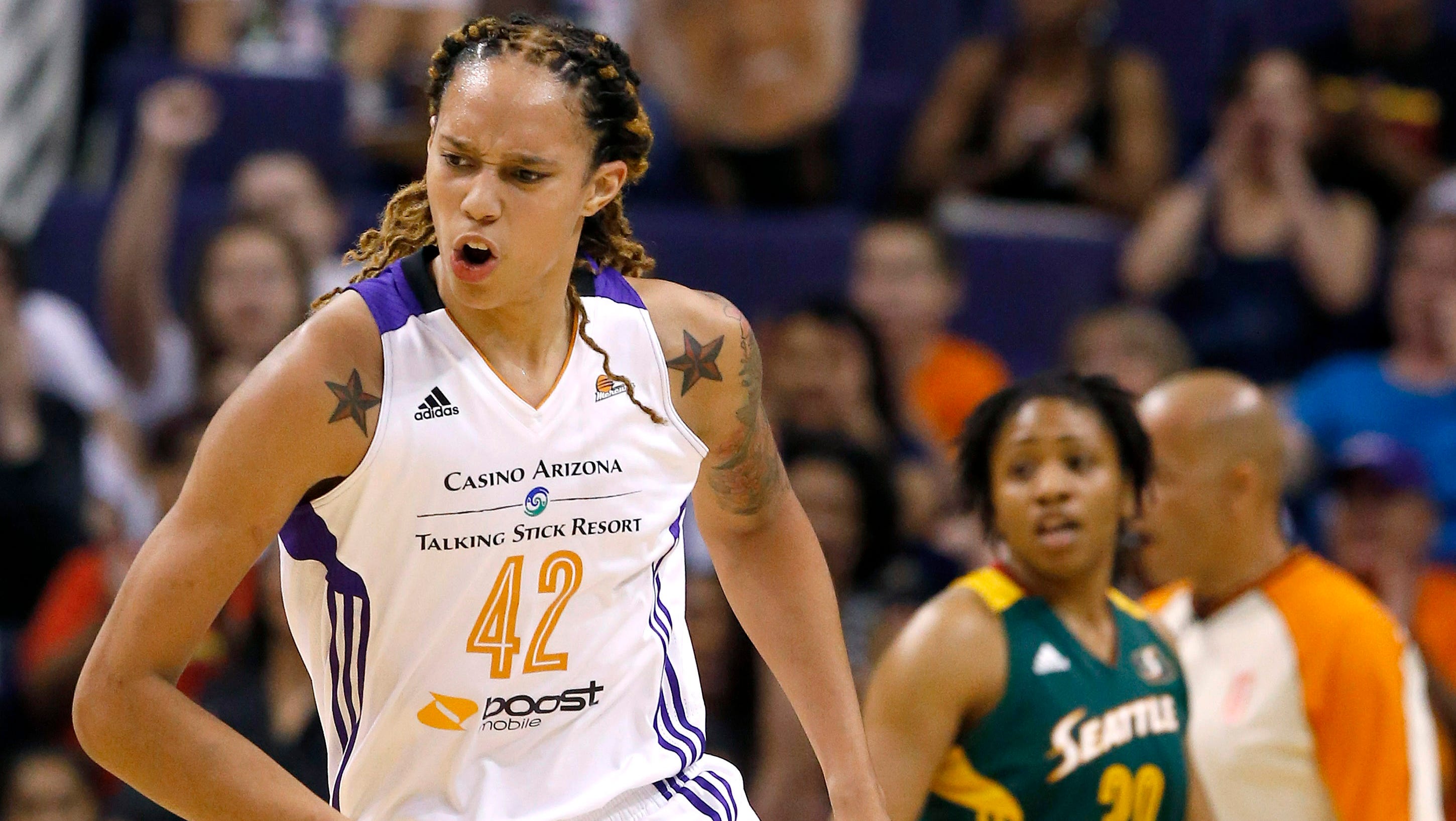Understanding Brittany Griner: Is Brittany Griner A Transgender?
Brittany Griner is a name that has resonated within the sports community and beyond, particularly in discussions surrounding gender identity and representation. As a celebrated professional basketball player, Griner's life has garnered significant attention not just for her athletic prowess but also for her personal journey. The question surrounding her gender identity—specifically, "is Brittany Griner a transgender?"—has sparked conversations that extend far beyond the basketball court, delving into the complexities of identity in contemporary society. This article aims to explore Griner's background, her contributions to the sport, and the discussions surrounding her gender identity.
In recent years, the sports world has seen an increasing focus on LGBTQ+ representation, with athletes using their platforms to advocate for acceptance and understanding. Brittany Griner has been a prominent figure in this movement, openly discussing her experiences as a queer woman in sports. As we unpack her story, we will also address the misconceptions and questions that often arise regarding her identity, including whether she identifies as transgender.
Throughout this exploration, it is essential to approach the topic with sensitivity and respect for Griner's personal experiences. Understanding her journey not only sheds light on her identity but also highlights the broader issues faced by many individuals in the LGBTQ+ community. So, let's delve deeper into the life of Brittany Griner and address the pressing question: is Brittany Griner a transgender?
- Aubreigh Wyatts Dad A Journey Of Love And Support
- Unveiling The Allure Of Shanin Blakes Onlyfans Journey
Who is Brittany Griner? A Brief Biography
Brittany Griner is a professional basketball player who has made significant contributions to women's basketball, both in the United States and internationally. Born on October 18, 1990, in Houston, Texas, she showed an early interest in sports, particularly basketball. Griner attended Nimitz High School, where she gained national attention for her impressive skills on the court. She went on to play college basketball at Baylor University, where she achieved remarkable success, including leading her team to a national championship in 2012 and winning numerous individual awards.
Brittany Griner's Personal Details and Bio Data
| Detail | Information |
|---|---|
| Full Name | Brittany Nicole Griner |
| Date of Birth | October 18, 1990 |
| Place of Birth | Houston, Texas, USA |
| Height | 6 ft 9 in (2.06 m) |
| Position | Center |
| College | Baylor University |
| WNBA Team | Phoenix Mercury |
| Achievements | 2× Olympic Gold Medalist, 1× WNBA Champion |
What is Brittany Griner's Sexual Orientation?
Before addressing the question of whether Brittany Griner is transgender, it is crucial to understand her sexual orientation. Griner identifies as a queer woman and has been open about her experiences in the LGBTQ+ community. She has spoken candidly about her relationships and the challenges she faced as a woman in a predominantly heterosexual sport. Griner's openness has been instrumental in promoting visibility for queer athletes and encouraging discussions about sexual orientation within sports.
Is Brittany Griner a Transgender? What Do We Know?
The question "is Brittany Griner a transgender?" can be misleading without context. Griner has publicly identified as a cisgender woman who is a member of the LGBTQ+ community. This means that she identifies with the gender she was assigned at birth, which is female. While Griner has not identified as transgender, her visibility as a queer athlete has contributed to important discussions about gender identity in sports.
- Exploring The World Of Moviespoint Mkv Your Ultimate Guide
- Discover The World Of Cinema At Wwwmkvmoviespointcom
How Has Brittany Griner Influenced the Conversation on Gender Identity?
Brittany Griner's influence extends beyond her performance on the basketball court. Her willingness to speak openly about her identity has inspired many young athletes to embrace their true selves. By sharing her experiences, Griner has helped to destigmatize conversations about gender and sexual orientation in sports. This has been particularly important in a field where traditional gender roles have often dictated how athletes should behave and present themselves.
What Challenges Has Brittany Griner Faced?
Despite her success, Brittany Griner has faced significant challenges related to her identity. She has spoken about the discrimination and prejudice she encountered as a queer athlete, including issues related to acceptance from peers and the public. In addition, the scrutiny of her appearance, particularly her height and physicality, has often led to unwarranted assumptions about her gender identity. Griner's experiences underscore the importance of fostering an inclusive environment in sports, where all athletes can feel safe and accepted.
What Can We Learn from Brittany Griner's Journey?
Brittany Griner's journey offers valuable lessons about acceptance, identity, and representation. Her story highlights the importance of understanding and respecting individual experiences, particularly in discussions about gender identity. As society continues to evolve in its understanding of gender and sexual orientation, Griner's courage in sharing her truth serves as an inspiration to many. It reminds us that every athlete has a unique story, and that inclusivity and respect are paramount in fostering a supportive community.
Conclusion: Is Brittany Griner a Transgender? Final Thoughts
To answer the question, "is Brittany Griner a transgender?"—the answer is no; she identifies as a cisgender woman who is part of the LGBTQ+ community. However, her journey and advocacy work have sparked crucial conversations about gender identity and representation in sports. Brittany Griner is not only a talented athlete but also a role model for many, promoting a message of acceptance and pride in one's identity. As we continue to support and uplift voices like hers, we move closer to a more inclusive society for all individuals, regardless of their gender identity or sexual orientation.
Article Recommendations



Detail Author:
- Name : Prof. Ubaldo Kuvalis
- Username : green.rosella
- Email : brenna63@heaney.net
- Birthdate : 1979-06-01
- Address : 118 Hudson Land Charleneland, DC 44215-6207
- Phone : +1.541.567.8632
- Company : Feeney Ltd
- Job : Railroad Conductors
- Bio : Voluptas voluptas ad harum voluptatem harum. Ad ut quibusdam quos dolore sed dolor sint. Et dicta nostrum tempore dolor est. Laudantium optio officia est dolores nihil laborum.
Socials
twitter:
- url : https://twitter.com/sschowalter
- username : sschowalter
- bio : Sunt adipisci possimus rem sed et expedita omnis aut. Dicta autem sunt dignissimos aut. Enim iure cum ut ipsam architecto quo sed cumque.
- followers : 959
- following : 2043
linkedin:
- url : https://linkedin.com/in/schowalters
- username : schowalters
- bio : Ullam nobis esse quia.
- followers : 3413
- following : 255
tiktok:
- url : https://tiktok.com/@schowalter2023
- username : schowalter2023
- bio : Rerum ipsam maxime saepe aperiam ea natus praesentium. Cum voluptas et sed.
- followers : 852
- following : 1668